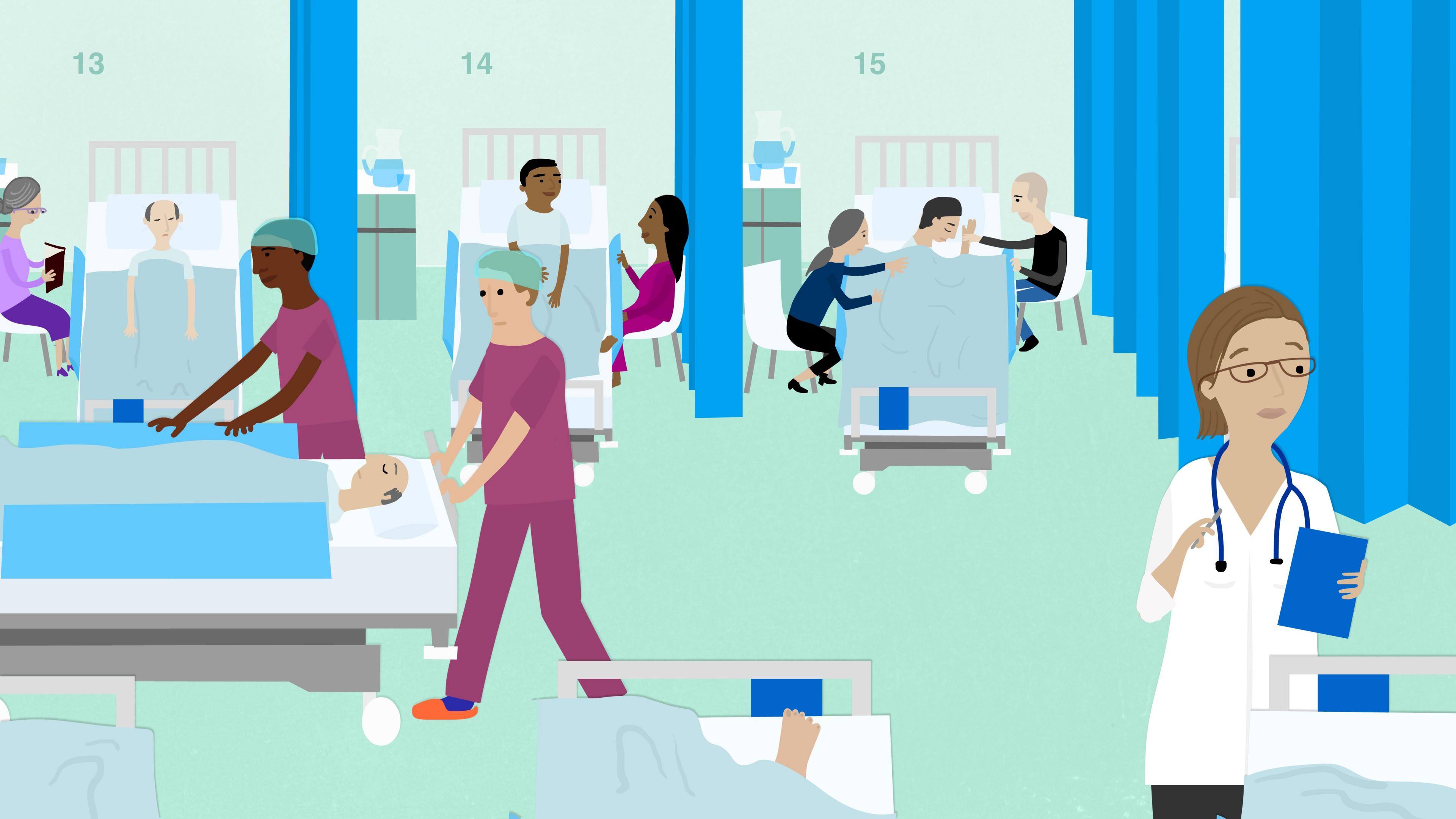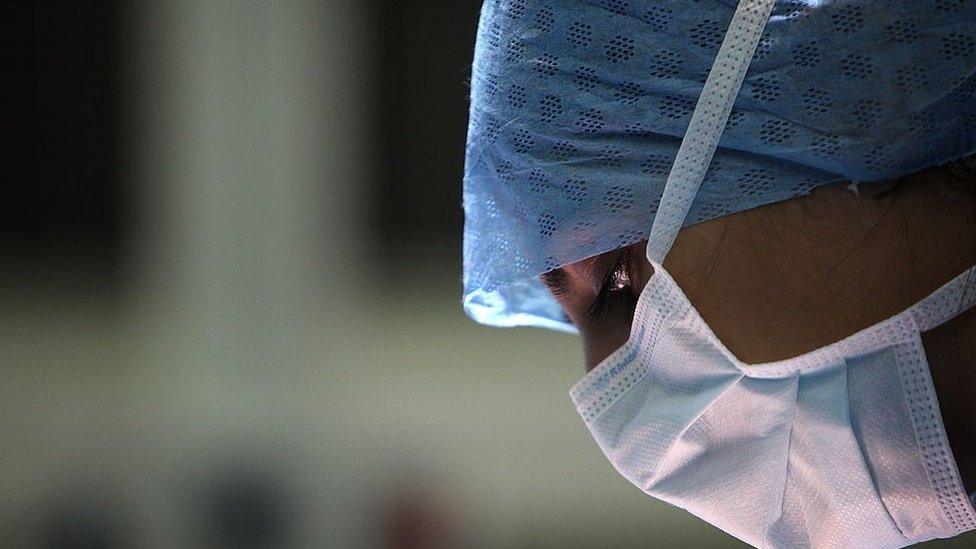NHS prepares for financial showdown
- Published

The Budget is over, the battle lines are drawn. Stand by for a prolonged period of speculation about how NHS England will respond to a funding announcement one of its top officials, Sir Bruce Keogh, has described as "worrying".
There's talk in the air of rationing and a further downgrading of targets for patient care.
Sir Malcolm Grant, chairman of the organisation, has said the extra money will go some way towards filling the funding gap but "we can no longer avoid the difficult debate about what it is possible to deliver for patients with the money available".
This will be high on the agenda for the NHS England board meeting on 30 November.
Haggling
NHS England chief executive Simon Stevens has already warned that failing to get a significant funding increase would mean waiting lists for non-urgent surgery in England ballooning to 5 million.
He said the only appropriate course would be to scrap the national waiting times target for routine operations. It was clear from NHS England's responses on Budget Day that its leadership felt the chancellor had not delivered what was needed.
The board meeting may well set out the direction of travel and the areas of care NHS England feels will need to be "deprioritised". But this will be followed by weeks of haggling with the Department of Health over the annual mandate setting out the government's objectives for NHS England as well as its budget.
NHS Budget plan not enough, say bosses
Jeremy Hunt: We must do better on NHS waiting times
NHS waits for cancer care, A&E and ops worsen across UK
10 charts that show why the NHS is in trouble
The £2bn extra announced in the budget for the NHS in England in 2018-19 will go to the Department of Health (after the usual formula is applied, Scotland, Wales and Northern Ireland will get proportionate increases).
Ministers will then "discuss" with NHS England leaders how the money will be spent. The Department, it seems, will not try to insist the funding is tied to specific waiting-list initiatives but may demand more efficiency improvements. There will, no doubt, be wrangling over what Mr Stevens thinks is achievable and what Health Secretary Jeremy Hunt thinks must be delivered (he has already said the four-hour A&E wait target will be reached next year and will be embarrassed if that does not happen).
Sir David Nicholson, former head of NHS England, gave his view via Twitter: "The first response is not to tell the public what they can't have but present the government with options and choices that flow from the consequences of the proposed funding of health and social care and do it openly and transparently."
'Dodged a bullet'
While NHS England was clear that the chancellor's injection of new funding was not adequate, there were varying shades of opinion across Whitehall and the health service.
Jim Mackey, head of the regulator NHS Improvement, struck a different note with his view that the extra revenue was "a reasonable investment" and the news that any pay award above 1% would be fully funded by the Treasury was "very welcome". He did acknowledge the money wouldn't make all the problems go away.
After an intensive number crunch, the health think tanks Nuffield, King's and Health Foundation suggested the Budget could have been worse and the NHS had "dodged a bullet".
But their experts criticised the award of £350m to cope with this winter's pressures arguing it was hard to spend the money effectively so late in the year. Sir David Nicholson's Twitter assessment was that it was "too late to spend it so it'll go straight to the bottom line and will allow government to blame the NHS if things go badly wrong". Whitehall sources argue that the new winter money is "better late than never".
Challenge of winter
Labour's Jon Ashworth has claimed that the funding boost for health still does not meet the Conservatives' manifesto pledge of raising the amount spent per person across the lifetime of the Parliament.
Figures from the House of Commons library show that Department of Health spending (in real terms) per head of population will rise from £2,207 this year to £2,223 next year before falling again to £2,222 and staying there till 2020-21. The Conservative election pledge on funding per person referred to the NHS as opposed to the Department of Health.
There will always be a debate about the NHS and money as patient demand rises relentlessly. Calls for a cross-party convention to grapple with the issue are gaining momentum. It will be brought to a head as and when NHS England announces what has to give in its services because of the funding which has been made available. There is also of course the small matter of a winter to be navigated.
If you can't see the NHS Tracker, click or tap here, external.

- Published22 November 2017
